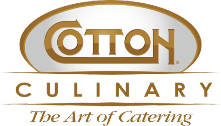
Building Inclusive Menus for Catered Corporate Events
When planning your next catered event or corporate luncheon, there are many things to consider. From the venue to choosing programming to logistics, there are many factors that affect the finished product. One of the biggest challenges to hosting a successful event is incorporating catering or meal service, despite also being one of the most significant contributors to an event’s success.
While corporate and event catering can improve productivity and your event’s overall impression on your audience, it can just as quickly isolate or even cause harm to certain guests if special care is not taken to ensure your menu is as inclusive as possible. For these reasons, it is essential to keep the following factors in mind when planning your next event to keep your guests happy and healthy.
Allergies
At the top of the list when crafting an inclusive menu should be mindfulness of the variety of allergy triggers present in many foods. Eight of the most common food allergens are peanuts, milk, fish, tree nuts, shellfish, wheat, soy, and eggs, which together account for almost all allergic reactions. When designing your menu, try to keep these ingredients out of your dishes, or make sure you have alternative options for those dishes that require these ingredients.
Dietary Restrictions
Though potentially not as severe as an allergic reaction, many individuals have certain health and diet restrictions when it comes to their meal choices. Examples of these restrictions include conditions like celiac disease, lactose intolerance, high blood pressure, and many more physiological needs. While certain ingredients like milk and salt are unavoidable in certain dishes, try to use them in moderation and always ensure you have alternatives for those wishing to avoid these food groups.
Religious
While not a physical restriction, it is important to consider possible religious dietary practices of your audience as well. From halal to kosher to religious vegetarianism, there are many different forms of religious dietary constraints that should be considered. This is of particular importance if you know the majority of your audience is made up of one of these groups. As usual, consider providing alternatives that fit all of these criteria for those who may need these options.
Preparation Safety
Lastly, regardless of which restrictions you are considering, it is essential to be mindful of all of these categories when your staff or catering partner is preparing your menu. Strict cross-contamination policies need to be followed not only for things like raw foods but also so cross-contamination does not occur between items on this list, like tree nuts being prepared on an allergy-free prep board. In order to maintain these standards, be sure to enforce strict training protocols among the staff so that they are mindful of these concerns as well.
Ultimately, the most important goal of any catered event should be to serve delicious, inclusive food that everyone can enjoy. If you need assistance creating the perfect menu for your next event, meeting or luncheon, contact Cotton Culinary. Our experts have decades of experience and can customize menus with any criteria or budget in mind.

